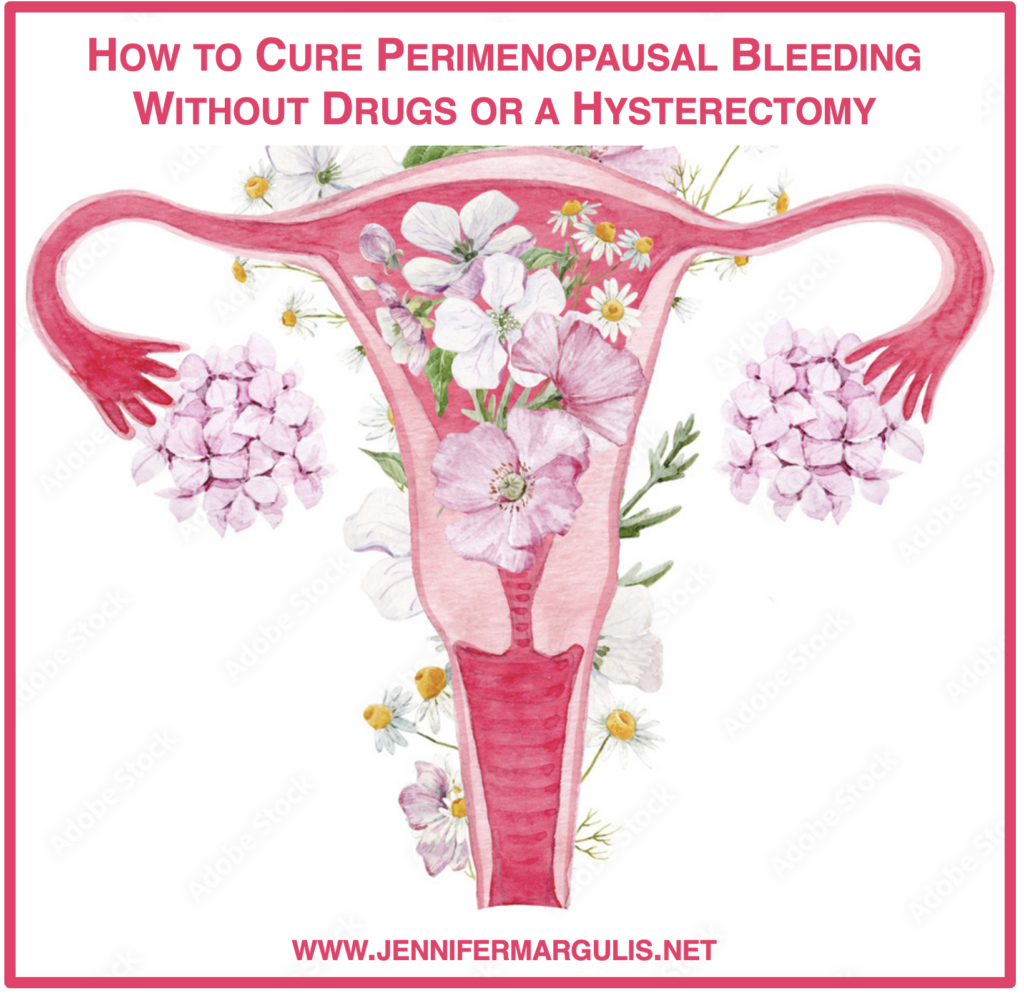 If you’re experiencing perimenopausal bleeding, you’re not alone. A lot of women notice, when they get into their early or mid 40s, that their periods become much heavier than they used to be. If you’re having a heavy flow due to perimenopausal bleeding, you may end up soaking through both pads and tampons. And find yourself needing a fresh pad or tampon as often as every hour. Then you become iron deficient. And exhausted. No fun.
If you’re experiencing perimenopausal bleeding, you’re not alone. A lot of women notice, when they get into their early or mid 40s, that their periods become much heavier than they used to be. If you’re having a heavy flow due to perimenopausal bleeding, you may end up soaking through both pads and tampons. And find yourself needing a fresh pad or tampon as often as every hour. Then you become iron deficient. And exhausted. No fun.
Many doctors recommend either hormone replacement therapy or surgery for perimenopausal bleeding.
But what if you don’t want to take synthetic hormones or have a major organ—your uterus—removed?
Luckily, according to Canadian midwife Gloria Lemay, there is another way.
Radical rest to stop perimenopausal bleeding
When she was in her 40s, Lemay started the long trek towards menopause. (Just like puberty, menopause is a process that takes many years. Ack. The things no one tells you. Like that you can have hot flashes for YEARS after you’re no longer menstruating.) During that time, she experienced flooding periods.
At first she ignored her body’s signals. Went about business as usual. Didn’t slow down. After all, she had teens to care for and a business to run.
But then Lemay had such a bad bout of bleeding that she almost called an ambulance.
That was her wake-up call.
She needed to follow her own advice and listen to her body.
Ever since I was diagnosed with ocular melanoma, I’ve been desperately trying to learn how to listen to my body’s signals. I can’t tell you how much I wish I’d learned to do this sooner. If only I could go back in time and give my younger self permission to slow down, rest, and take care of herself.
Sigh.
Lemay’s advice to postpartum women: Get into bed and stay there. Rest. Enjoy lots of skin-to-skin with your newborn. Do not do dishes or laundry. Don’t cook. Honor your body and the tremendous cleavage that it’s gone through.
To stop the perimenopausal bleeding, Gloria Lemay applied her own advice to herself. At the first sign of bleeding, she got into bed to rest.
And stayed there. For five days.
Until the bleeding stopped.
Every month.
You can read her story here → How to Cure Perimenopausal Bleeding (Without Drugs or a Hysterectomy)
Who has time to do that, you are probably wondering. It may feel impossible, but when we honor our bodies we allow ourselves to radically heal.
Related posts:
When Hurry Becomes a Habit: It’s Time to Stop Rushing Our Kids
Medical Doctors Are Choosing Home Birth, Here’s Why
Too Many Vaccines Too Soon, Doctors Say
Leave a Reply